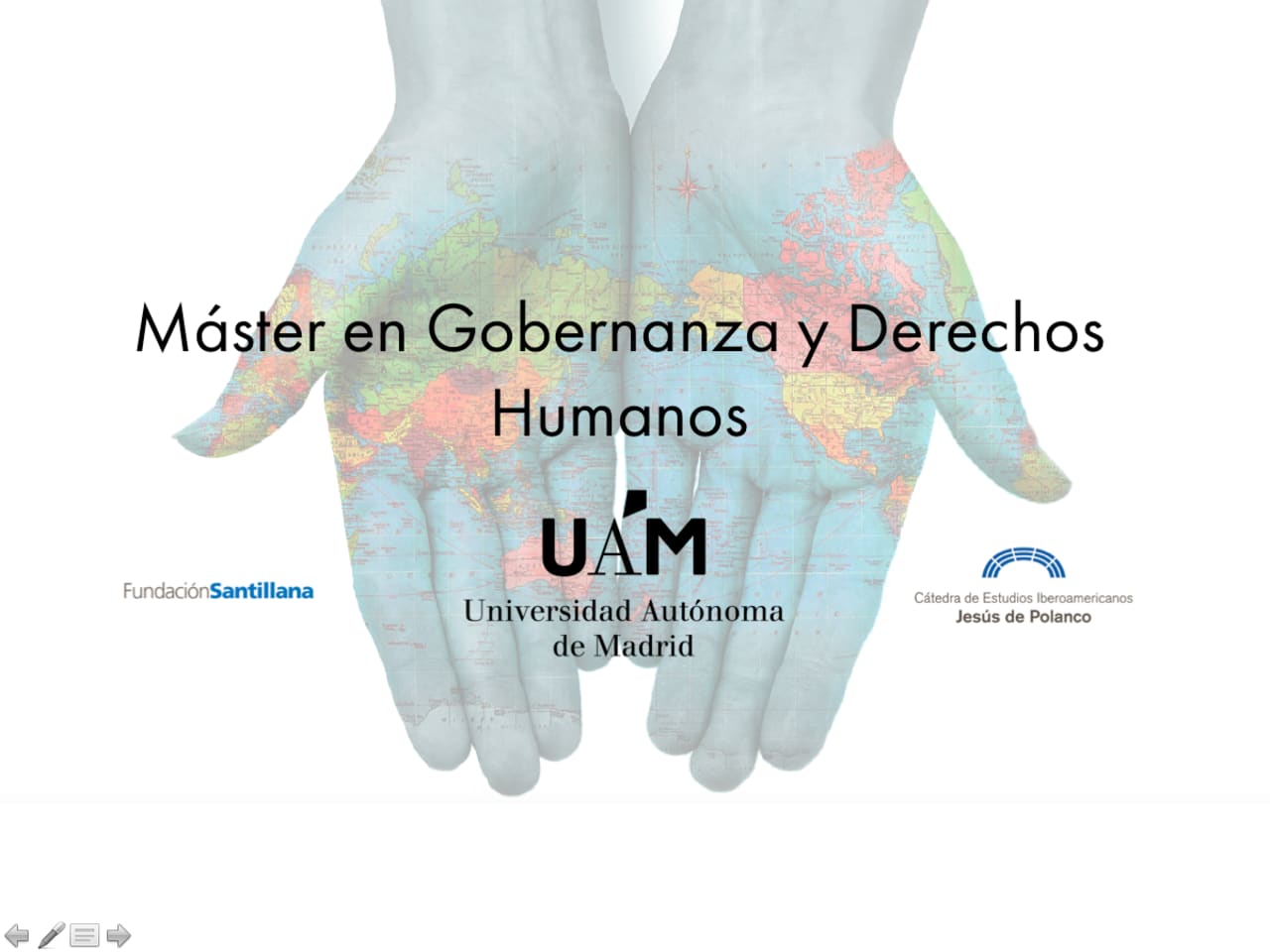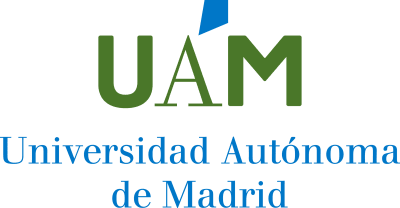
Master in Governance and Human Rights
Universidad Autonoma de Madrid

Key Information
Campus location
Madrid, Spain
Languages
Spanish
Study format
On-Campus
Duration
1 Year
Pace
Full time
Tuition fees
EUR 4,000 / per year
Application deadline
15 Nov 2024
Earliest start date
Jan 2025
Introduction
The Master in Governance and Human Rights is oriented towards research as the best path for professional specialization, offering an ideal training for employment in public and private organizations for the defense of human rights, both national and international, as well as in law firms. lawyers with departments specialized in fundamental rights and their defense before national and international administrations and jurisdictions, work in consultancies on human rights with international projection, consultancies and development cooperation, as well as to access the public function or to develop a career oriented towards public affairs.
The Master has 60 credits, divided into four modules. The contents are designed to be taken in a calendar year, 38 of which are face-to-face.
The teaching period will last four months, with daily classes in the afternoons from 4:00 p.m. to 8:00 p.m., taught in the classrooms of the Faculty of Law of the Autonomous University of Madrid by the most outstanding professors.
The teaching period will be face-to-face and is divided into two modules. Theoretical classes will be complemented with tutorials from Monday to Friday, which may be face-to-face, by phone or online.
The student may also request an internship in one of the public bodies and institutions that has an agreement with the Master for a minimum period of 6 weeks. The practices will be directed by the coordination of the module and by a tutor appointed by the organization in which they are developed.
Students who pass the two theoretical modules and the practical one, must carry out, in the period from September to December, a Master's Final Project on any of the topics contained in the program. Said work will be directed in person or through the internet by a Master's professor who will act as a tutor. Investigative sufficiency will be accredited with the presentation and defense of the investigation before a Court composed of three professors Doctors. If the student is not in Madrid on the date indicated to defend their work before the Court, they may request that the Court evaluate it online or virtually.
Duration of the Master
From January to January of each year.
The master's degree will be taught from the beginning of January to the end of June, from Monday to Thursday from 4:00 p.m. to 8:00 p.m. and Friday from 11:00 a.m. to 2:30 p.m. at the UAM Law School. The external practices will be carried out from June, although exceptionally they can also be carried out from the beginning of the face-to-face course. The first three modules (Governance, Human Rights and Guarantees and Practicum) will be face-to-face and the fourth (Master's Thesis), in some cases and upon request, can be done from the countries of origin. The last module will take place from September to December and will consist of preparing the final master's project (TFM), under the direction of a tutor in person or online.
Enrollment Requirements
- Graduate, graduate or related.
- It is necessary that those students from non-Spanish speaking countries have a sufficient knowledge of Spanish.
Pre-registration
Term: Open ( Limited Places )
Students who have a Spanish degree or students with a foreign access title must send the pre-registration form duly completed. You must attach a photocopy of the identity document or passport and the respective title. If necessary, the Master's Secretariat will provide those who request it with an official letter stating the pre-registration request made and, where appropriate, admission.
Employability
Our employability ratio reaches 75% of the students trained , this being the percentage of those who manage to access a professional position related to the fields of study after obtaining the degree.
Professional outings
The vast majority of our students have gained access to professional positions in the legal, political, diplomatic, cooperation and research fields of NGOs, institutions for the guarantee and defense of Rights of a national and international nature and of various organizations of the International System of Nations. United. There are numerous professional opportunities in law firms with departments specialized in fundamental rights and their defense before national and international administrations and jurisdictions, in consultancies on human rights with international projection, in consultancies and development cooperation, as well as in access to the public function or in the development of a career oriented towards public affairs.
Fees
The academic fees for the Master's degree are 4,000 euros.
These fees grant the right to all the teaching given in the Master, both theoretical and practical, as well as to the teaching materials that are delivered during the academic year. The fees also guarantee access to the resources of the Master and the Autonomous University of Madrid (library, administrative services, sports, employment orientation, insurance, medical services, etc.). Likewise, fees for exams, issuance of the title and student card, UAM email account and access to internships at the centers indicated are covered.
Possibility of installment payment: The possibility of paying the fees in two installments is allowed: 1500 euros upon registration and 1500 euros in April.
Requirements for obtaining the title
- Attendance at least 80% of the classes and practices (modules I, II and III)
- Favorable evaluation of the final tests of modules I, II and III
- Favorable grade for the master's thesis.
The student who exceeds the above requirements will obtain the Master's Degree in Governance and Human Rights from the UAM . This title is taught within the postgraduate offer officially approved by the UAM and accredits the completion of the teachings offered.
Study in Madrid
There are multiple reasons to choose Madrid as the city in which to study, beyond the strictly academic. Among the main reasons is the warmth of its people, who always offer a warm welcome to students from outside Madrid and Spain. The city is characterized by its multiculturalism, since numerous cultures converge in it, living in respect and harmony. It is a welcoming city, open to the world and caring, the fruit of its own history.
On the other hand, we find the great cultural offer, since Madrid brings together a large part of the best museums and theaters in Spain, as well as numerous cultural events of all kinds and of high level, placing it as one of the European cultural capitals of reference.
The city of Madrid also stands out for its geographical location, since being in the center of Spain and being the capital of the country, it has a privileged location from which it is possible to travel to various parts of its geography. Also from Madrid you can get to know the rest of Europe in a simple way, since its airport has multiple international connections and a high frequency of flights to other European cities.
Finally, we cannot fail to mention two other significant attractions such as leisure and the climate. These are two other good reasons to choose Madrid as a destination to study, since there is a wide variety of nightlife, as well as the possibility of going on excursions around the capital, where you will find tourist attractions recognized throughout the world such as Toledo , Ávila, Segovia, or El Escorial, among others. In addition, Madrid has one of the most pleasant climates in Spain, which will allow you to enjoy life outdoors for most of the year.